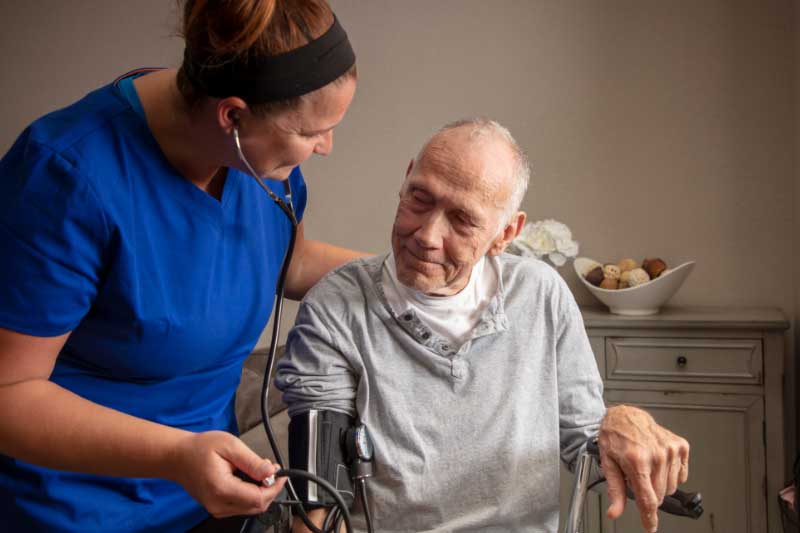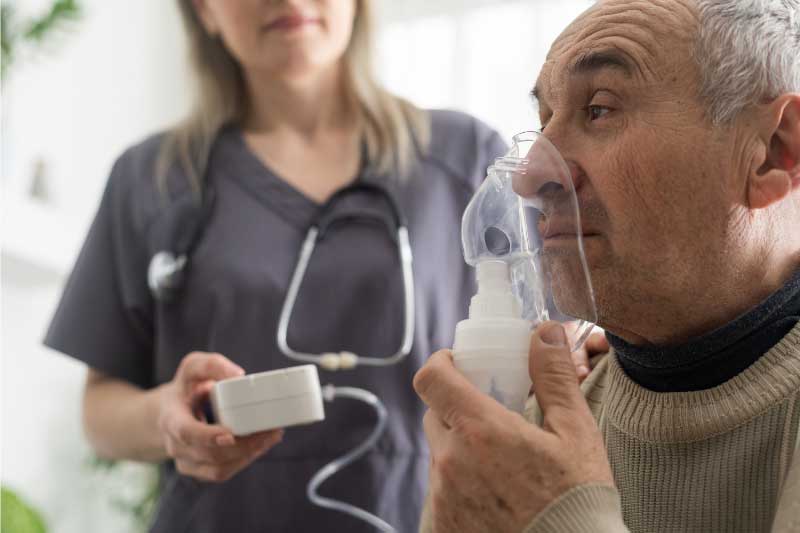Understanding the Benefits of Hospice for Those with End Stage COPD
Chronic Obstructive Pulmonary Disease (COPD) affects millions of people worldwide, and as it progresses to the end stage, it significantly impacts patients’ quality of life. For individuals with end-stage COPD, managing symptoms can feel like an uphill battle. That’s where hospice care steps in, offering comfort, support, and dignity when it is needed the most.
This blog explores the many benefits of hospice care for those with end-stage COPD, highlighting how it helps patients and their families through this challenging phase. Whether you’re exploring care options or looking to understand hospice services better, this guide will provide the answers you need.
What Is Hospice Care and Who Is It For?
Hospice care is a specialized type of healthcare designed to support individuals facing a terminal illness. The focus shifts from curative treatments to comfort care. The primary goal of hospice is to enhance the quality of life for patients by addressing their physical, emotional, and psychosocial needs.
Hospice care is an invaluable resource for patients with end-stage COPD. COPD in its advanced stages can cause debilitating symptoms such as severe shortness of breath, chronic fatigue, and frequent respiratory infections. These symptoms can diminish the patient’s ability to perform everyday tasks, creating a need for personalized, palliative support.
Hospice care serves individuals who:
- They are no longer seeking curative treatment for their illness.
- Have a prognosis of six months or less, according to physicians’ evaluations.
- Need comprehensive symptom management and specialized end-of-life care.
How Hospice Care Supports Patients with End Stage COPD
Dealing with advanced COPD can be overwhelming—not just physically, but emotionally and mentally as well. Hospice teams are equipped to address these specific challenges, offering a range of services tailored to the needs of each patient.
Expert Symptom Management
One of the most significant benefits of hospice care is expert symptom management. For patients with end stage COPD, this often includes:
- Relieving breathlessness: Hospice teams utilize oxygen therapy, medications like bronchodilators, and non-invasive ventilation to ease respiratory distress.
- Managing infections: Frequent chest infections are common in COPD, and hospice staff work proactively to address infections with medications and supportive treatments.
- Pain control: Some patients may experience chest pain or discomfort due to their condition or its complications. Hospice employs personalized pain management plans to help patients stay comfortable.
By addressing these symptoms promptly and effectively, hospice care can alleviate much of the distress associated with late-stage COPD.
Emotional and Psychological Support
Living with end stage COPD is not just physically taxing but emotionally draining, as well. Depression, anxiety, and feelings of hopelessness can become common among patients. Hospice care provides:
- Emotional counseling to help patients come to terms with their condition.
- Relaxation techniques and mindfulness exercises to reduce stress and promote mental well-being.
- A listening ear through compassionate caregivers and social workers who understand the emotional toll of COPD.
This psychological support empowers patients to focus on living as fully as possible during their remaining time.
Enhanced Quality of Life
For individuals with advanced COPD, maintaining a semblance of day-to-day normalcy can feel impossible. Hospice care aims to restore a sense of control and dignity by catering to the patient’s preferences and comfort. Patients can receive care:
- At home, in familiar surroundings where they feel safe and comfortable.
- At a hospice facility, where specialized care is readily available.
- At a loved one’s residence, ensure family involvement and support.
Hospice also supports patients with daily tasks and encourages them to engage in activities that bring them joy, ensuring their days are as fulfilling as possible.
The Role of Hospice for Families of COPD Patients
Hospice care isn’t just for the patient; it’s a lifeline for their families. Watching a loved one battle end-stage COPD can be incredibly challenging. Hospice provides families the support and guidance necessary to cope during this difficult time.
A Source of Education and Guidance
Many families find themselves unsure of how to care for a loved one with advanced COPD. Hospice care bridges this knowledge gap by providing:
- Education about the patient’s condition and progression.
- Training on how to assist with breathing techniques, oxygen therapy, and symptom management.
- Guidance on how to handle emergencies, such as sudden respiratory distress.
This empowers families to feel more secure and capable in their caregiving roles.
24/7 Availability
One of the standout benefits of hospice care is the round-the-clock availability of skilled professionals. Whether a breathing complication occurs late at night or guidance is needed during an emotional moment, hospice teams are just a phone call away. Families can rest easier knowing they have access to immediate support whenever they need it.
Emotional Support for Caregivers
Caring for someone with end-stage COPD can take a toll on caregivers’ mental health. Hospice teams recognize this and provide counseling, support groups, and respite care services to help families cope. Family members are encouraged to address their own emotional needs, ensuring they’re strong enough to continue offering the care their loved ones need.
Bereavement Services
After a loved one passes, hospice care continues to support families through bereavement services. These include one-on-one counseling, group therapy sessions, and resources to help family members process their grief and heal.
When Should You Consider Hospice for COPD?
Timing is one of the family’s most common questions when considering hospice care. To determine whether it’s the right time to explore hospice for a loved one with COPD, look out for these signs:
- Frequent hospitalizations due to respiratory complications.
- Increasing difficulty in managing symptoms at home.
- Unexplained weight loss and muscle wasting (common in COPD patients).
- Dependency on oxygen therapy 24/7 to assist with breathing.
- A decline in the ability to perform daily tasks independently.
Ultimately, the decision to begin hospice care is a personal one, best made in consultation with the patient’s healthcare providers.
When Should You Consider Hospice for COPD?
Not all hospice providers are created equal. When exploring options, look for providers who:
- Have experience specializing in respiratory care management.
- Offer a multidisciplinary team, including physicians, nurses, social workers, and spiritual counselors.
- Provide flexible care options, whether at home or in a hospice facility.
- Prioritize patient comfort, dignity, and individuality.
Visit potential providers, ask questions, and ensure their approach aligns with your loved one’s needs and preferences.
Helping COPD Patients Live Well in Their Final Chapters
Hospice care for patients with end stage COPD is more than just medical support; it’s about enriching life during its final stages. From expertly managing symptoms to providing emotional care and family support, hospice offers a comprehensive solution tailored to each patient’s needs. It’s about helping individuals live with dignity, comfort, and peace, even in the face of challenging circumstances.
If you or a loved one is navigating end stage COPD, don’t hesitate to explore the benefits of hospice care. Connect with local providers, ask questions, and take the first step toward ensuring quality support for every breath forward.







